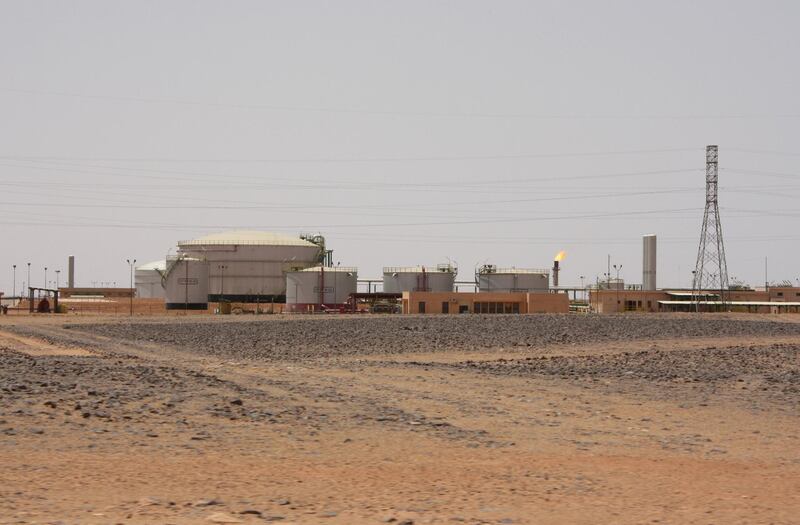Libya's giant El Sharara oilfield was shut down on Sunday after a local landowner closed a valve in protest against pollution near a pipeline crossing his land.
The closure, which was confirmed by an oilfield engineer and separate Libyan oil sources, is a major blow to the country a little more than a week after a protest by guards closed the nearby El Feel oilfield.
Sharara has capacity of 340,000 barrels per day (bpd) and had been pumping about 308,000 bpd last week, more than one quarter of Libya's national output. Libya's National Oil Corporation (NOC) operates Sharara in partnership with Repsol, Total, OMV and Statoil.
"I closed the pipeline that crosses my land. The land is six hectares and it has become wasteland," said Hassan Mohamed Al Hadi, the landowner in the western Zintan area.
"We closed the pipeline last year for the same reason. A number of mediators had intervened to persuade me to reopen it within 20 days for cleaning the land, but unfortunately the same thing has returned."
Flows from Sharara in the south-west of the country were not getting through to the Mediterranean port of Zawiya, an oilfield engineer said, confirming the closure.
___________
Read more:
[ Libya oil chief condemns state capture ]
[ Shell, BP to buy Libyan oil amid increase in supply ]
___________
A decision on whether to declare force majeure on exports from Sharara would depend on the expected length of the interruption, one oil source said.
Sharara reopened after a long blockade in late 2016 but has suffered a number of stoppages since then because of localised protests by guards and other groups, part of turmoil that has gripped Libya since the toppling of Muammar Qaddafi in 2011.
Repeated and long shutdowns cause pressure in the oilfield's wells to drop, reducing production capacity. Boosting capacity at Sharara and other fields requires much-needed investment that NOC has been struggling to secure.
As conflict and falling oil revenues caused living standards to slide in Libya in recent years, local groups have tried to press demands by blockading oil facilities.
"The National Oil Corporation does not stand to its responsibility and clean the land as happened before 2011," said Mr Al Hadi, the landowner, who also said there had been no response from the state.
In addition to being one of Libya's main export grades, Sharara also feeds the 120,000 bpd Zawiya oil refinery in the west of the country, currently the largest operating refinery.
A week ago NOC declared force majeure on the 70,000 bpd El Feel after a protest by guards closed the field, which is operated by a joint venture between state-owned NOC and Italy's Eni.
Crude from El Feel is blended with condensate from the Wafa field to form the Mellitah blend, which is exported from the Mellitah terminal.





